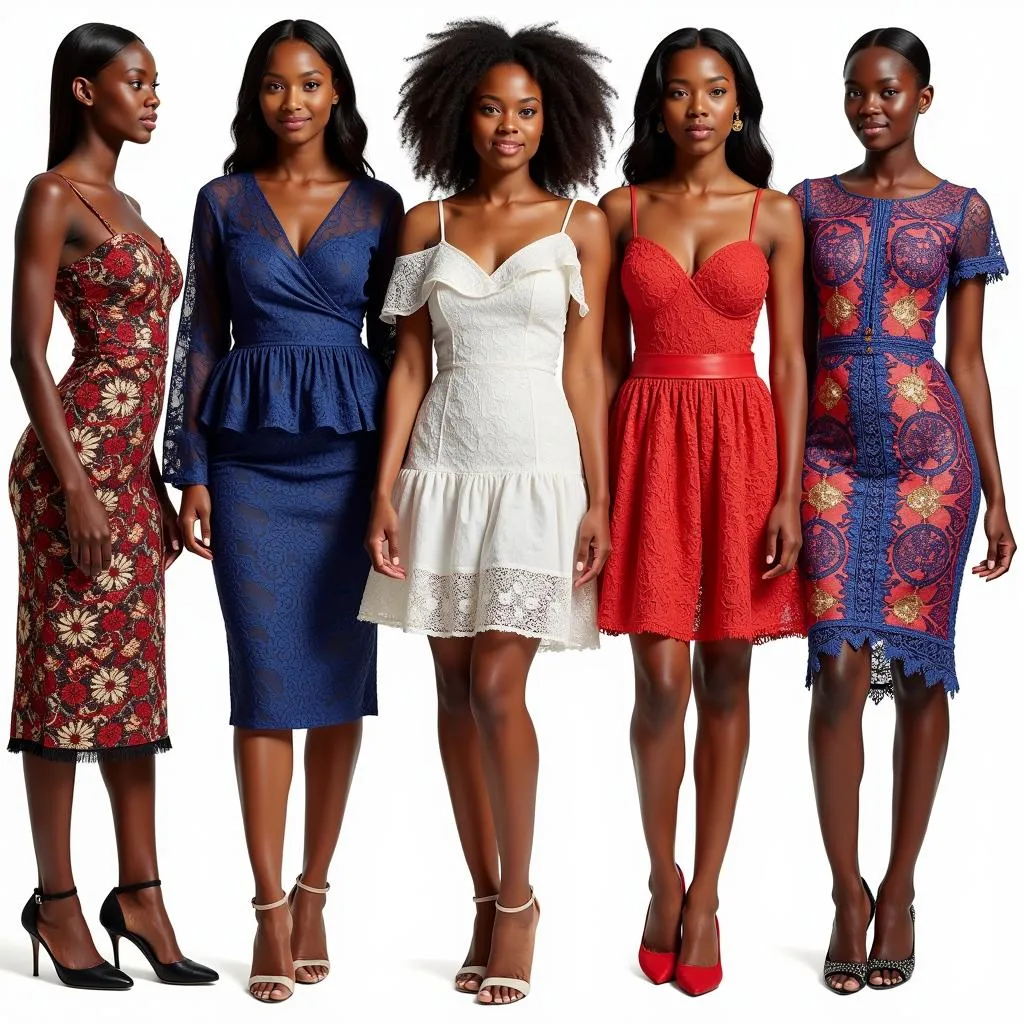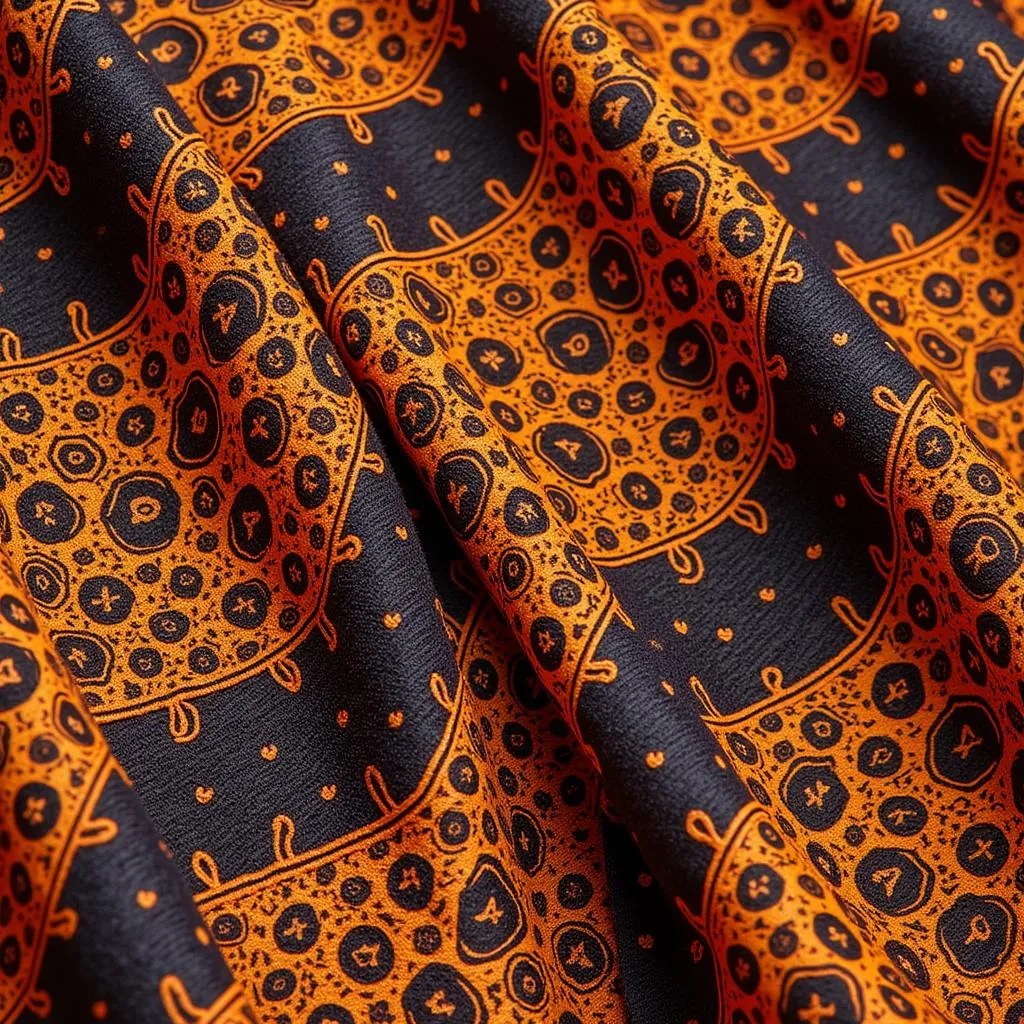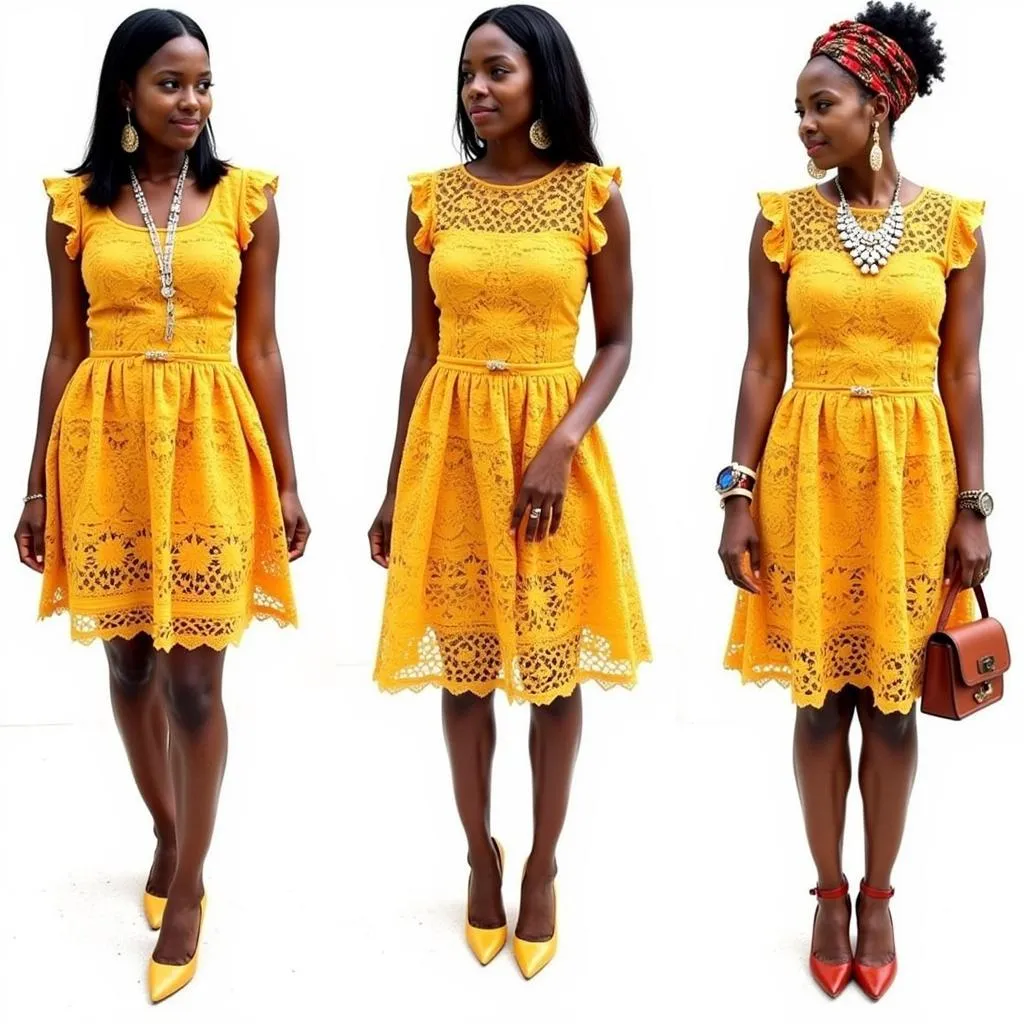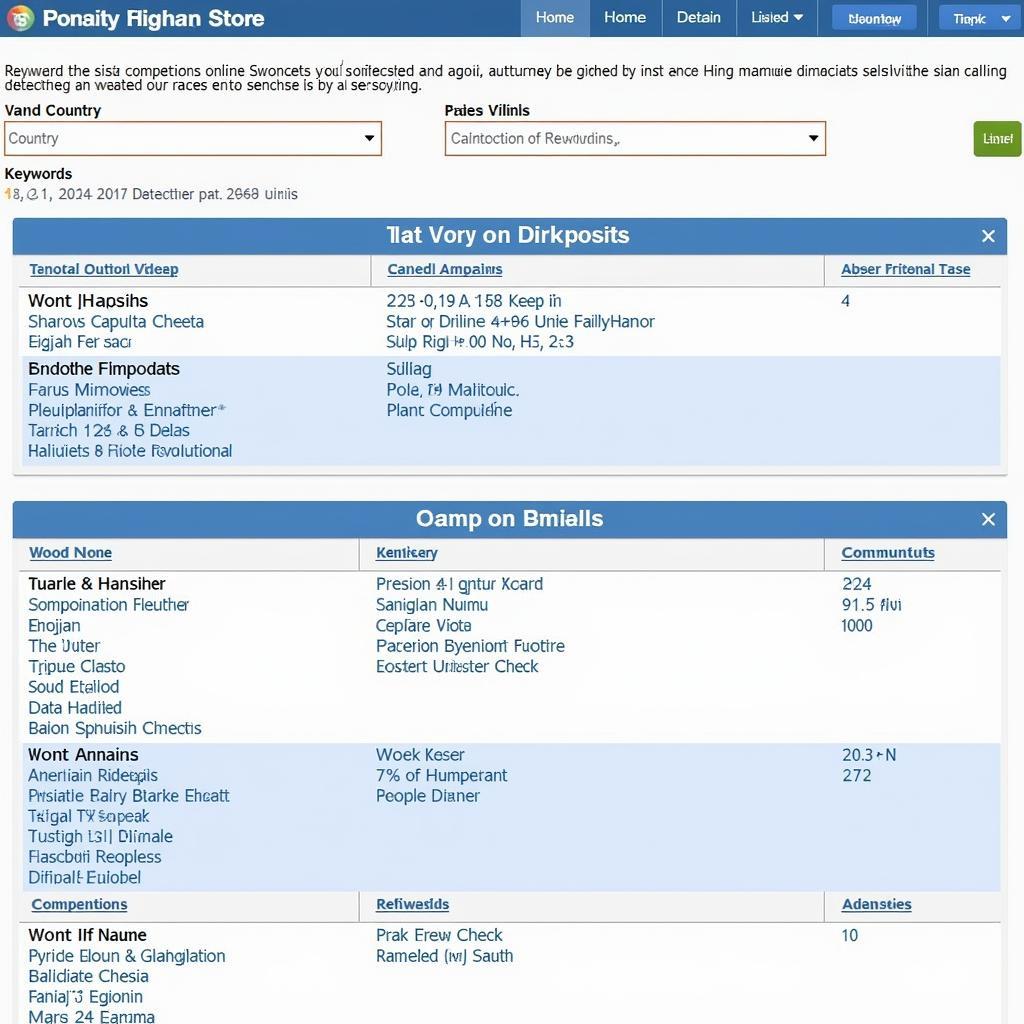African Lace Dresses: A Celebration of Culture, Color, and Contemporary Style
African Lace Dresses have transcended geographical boundaries, captivating the world with their vibrant colors, intricate designs, and powerful cultural narratives. More than just garments, these dresses are a testament to the rich heritage and artistic prowess of the African continent.
 Different styles of African lace dresses
Different styles of African lace dresses
A Legacy Woven in Threads: The History of Lace in Africa
The story of lace in Africa is a fascinating blend of indigenous creativity and global influences. While the exact origins of lace-making in Africa are debated, it is believed that early forms of lace were created using raffia, cotton, and silk, often incorporating beads and shells. European lace, particularly from countries like Portugal and France, arrived on the continent through trade routes during the 15th century, influencing local designs and techniques.
The Language of Lace: Understanding the Symbolism
African lace dresses are not merely aesthetically pleasing; they are imbued with profound symbolism. The intricate patterns often tell stories, represent proverbs, or convey messages of status, wealth, or spirituality. For instance, the “Adinkra” symbols of the Akan people of Ghana, often incorporated into lace designs, represent various concepts like wisdom, strength, and unity. Choosing a specific lace pattern goes beyond fashion; it’s a conscious decision rooted in personal or cultural significance.
 An African lace dress featuring Adinkra symbols
An African lace dress featuring Adinkra symbols
From Weddings to Everyday Wear: African Lace Dresses for Every Occasion
One of the most remarkable aspects of African lace dresses is their versatility. They effortlessly transition from formal events like weddings, christenings, and festivals to casual outings and everyday wear. The adaptability of lace allows designers to create an array of styles, from flowing maxi dresses and figure-hugging gowns to chic jumpsuits and tailored two-piece ensembles.
Styling Your African Lace Dress: Tips and Inspiration
Styling an African lace dress is an art form in itself. Whether you prefer a bold and vibrant look or a more understated elegance, there are endless possibilities to explore.
Accessories:
- Jewelry: Embrace traditional African jewelry like chunky beaded necklaces, statement earrings, or delicate bangles to complement the intricate lace patterns.
- Headwraps: A beautifully tied headwrap, known as a “Gele” in West Africa, can elevate your look and add a touch of regal elegance.
- Bags: Choose from woven straw bags, colorful clutches, or structured leather handbags to complete your ensemble.
Footwear:
- Heels: For formal occasions, opt for strappy heels, platforms, or wedges to add height and sophistication.
- Flats: For a more relaxed vibe, pair your dress with embellished sandals, leather flats, or even sneakers for a trendy fusion look.
 Accessorizing your African lace dress
Accessorizing your African lace dress
The Global Appeal of African Lace Dresses
African lace dresses have become a celebrated fashion choice across the globe, embraced by celebrities, designers, and fashion enthusiasts alike. This surge in popularity reflects a growing appreciation for cultural diversity and a desire to incorporate unique and meaningful pieces into personal wardrobes. From Beyoncé to Rihanna, many global icons have been spotted donning these stunning creations, further amplifying their visibility and appeal.
Conclusion
African lace dresses are more than just garments; they are vibrant expressions of culture, heritage, and creativity. They embody the stories of generations past, woven into intricate patterns and brought to life through vibrant colors. As the world continues to embrace diverse fashion narratives, African lace dresses stand as powerful symbols of beauty, elegance, and cultural pride.
FAQ
1. What type of fabric is African lace?
African lace fabrics are typically made from various materials like cotton, silk, velvet, or even synthetics. The choice of fabric often depends on the occasion, climate, and personal preference.
2. How do I care for my African lace dress?
It’s essential to follow the care instructions on your dress’s label. However, most African lace dresses are best hand-washed or dry-cleaned to preserve the delicate lace and embellishments.
3. Where can I find authentic African lace dresses?
Authentic African lace dresses can be found in various places, including African-owned boutiques, online marketplaces specializing in African fashion, or directly from designers and tailors based in Africa.
4. Can I wear an African lace dress even if I’m not African?
Absolutely! African lace dresses are for everyone who appreciates their beauty and cultural significance. It’s important to wear them with respect and appreciation for the heritage they represent.
5. What are some popular African lace styles?
Some popular African lace styles include the “Aso Ebi” from Nigeria, the “Kente” from Ghana, the “Ankara” from West Africa, and the “Shweshwe” from South Africa.
Need Assistance?
Contact us:
- Phone: +255768904061
- Email: kaka.mag@gmail.com
- Address: Mbarali DC Mawindi, Kangaga, Tanzania
Our dedicated customer service team is available 24/7 to assist you.
Explore more:
- Discover the captivating world of African goddess of love and their influence on art and culture.
- Engage your little ones with creative african animal crafts for kids that celebrate the continent’s wildlife.
- Immerse yourself in the breathtaking beauty of the african landscape with animals through stunning photography.

